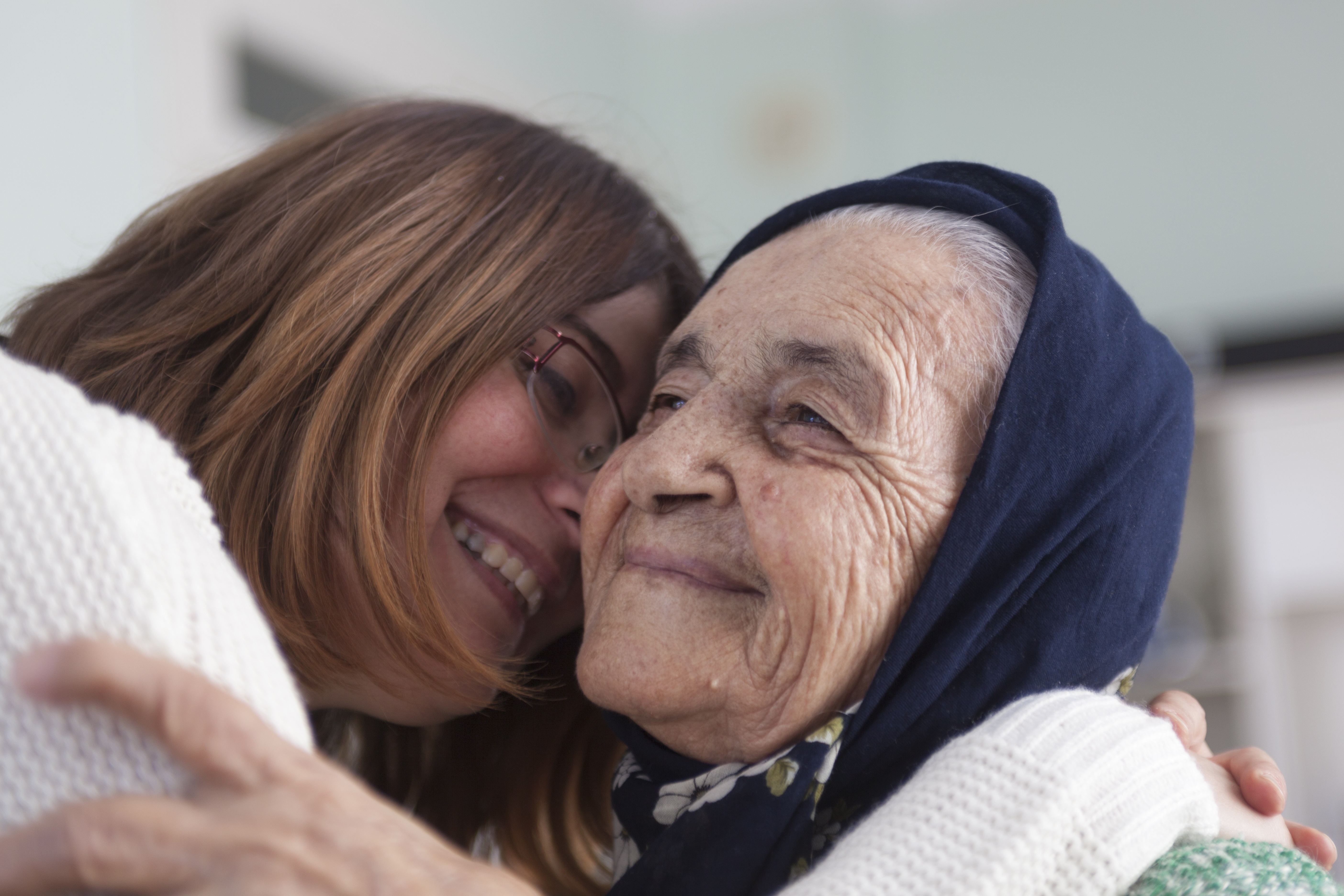Speaking a Common Language

Are you considering home health care for a senior loved one, but you’re concerned about a language barrier?
Older adults who aren’t proficient in the language that’s prevalent where they live often find it challenging to access health care services in a language they understand. This could negatively impact patients’ health and safety. Imagine, for instance, not being able to describe your symptoms to a physician, or not understanding your surgeon’s instructions for post-operative care.
In addition, people who live with Alzheimer’s disease or another type of dementia often have difficulty with understanding and using words. This is a condition known as aphasia, and it can cause significant communication challenges. Aphasia isn’t a “language barrier” in the usual sense of the term, but what’s less commonly known about dementia is that people who are bilingual often revert to their primary language, or mother tongue – adding another layer to the problem of language access.
At a loss for words
Often, family members translate for their loved ones at doctors’ offices, hospitals and long-term-care facilities. When they are not present, health-care workers often rely on interpreters. (For example, Mount Sinai Hospital in Toronto offers free interpretation services in 65 languages.) Staff may use non-verbal communication strategies, such as gestures or holding up handwritten cards in a patient’s primary language.
Nevertheless, language barriers in health-care settings are an ongoing problem, one that’s expected to worsen as Canada’s population ages. In December 2018, The Globe and Mail published an article about Ontario’s urgent need for long-term care and dementia care provided in French, as well as other languages. The wait time for a spot in a French-language long-term-care facility is currently up to five years, reported journalist Wency Leung – there is just one bed available for every 3,400 francophones in the Greater Toronto Area, compared to one for every 170 Ontarians in the general population.
Outside of clinical settings and nursing homes, language challenges also affect older adults who need home health care services – such as personal care, light housekeeping or companionship – in order to safely age in place. However, their family members are often busy with work and other obligations, and no one is available to translate.
Problems with caregiver communication can cause seniors to feel frustrated or anxious, on top of the concern they may already feel about having a stranger in their personal space.
Finding Compatible Caregivers
A reputable home care agency takes the time to match each client with compatible caregivers. At Bayshore Home Health, our employees are very diverse. Whenever possible, we match our clients with caregivers who best fit their needs, personality and preferences, including cultural and language similarities.
Having a compatible caregiver can greatly enhance a client’s comfort level. If you would like to learn more about finding an experienced caregiver who speaks your loved one’s language, get in touch with us today.
Bayshore Home Health offers a wide range of home care services to help Canadians live independently for as long as possible. Contact us at 1-877-289-3997 for details.
